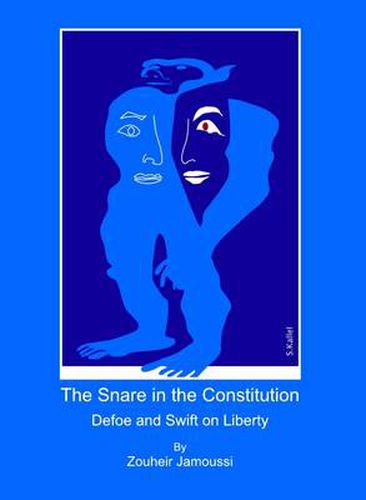Readings Newsletter
Become a Readings Member to make your shopping experience even easier.
Sign in or sign up for free!
You’re not far away from qualifying for FREE standard shipping within Australia
You’ve qualified for FREE standard shipping within Australia
The cart is loading…






This comparative study of Defoe’s and Swift’s treatments of liberty embraces what seemed the most significant parts of their vast, multifaceted oeuvres, both non-fictional and fictional. Defoe’s and Swift’s positions with regard to the English constitution and liberties are assessed here through a close examination of their views on contemporary religious and political issues. Moreover, their involvement in the debates on the liberties and constitutions of Scotland and Ireland, respectively, could not be left out of this comparative approach to their treatments of liberty in the broader sense. Also of primary concern is the liberty of expression and of the press underlined (though ambiguously) by both authors as an essential precondition for any debate, political or otherwise. The antithetic relationship between snare and liberty is examined in the context of the analogy between the political constitution (the body politic) and the human constitution (the natural body) commonly drawn in early 18th century political writings, including Defoe’s and Swift’s. This analogy provides appropriate means of identifying important links within, as well as between, the two authors’ works, since both focused on snares in the political and human constitutions. The part of the study devoted to the snare in human nature mainly considers the fictional works. Much attention has been given in this regard to the contrasting ways in which both authors have dealt with those snares and the interaction between the human and the political constitutions.
$9.00 standard shipping within Australia
FREE standard shipping within Australia for orders over $100.00
Express & International shipping calculated at checkout
This comparative study of Defoe’s and Swift’s treatments of liberty embraces what seemed the most significant parts of their vast, multifaceted oeuvres, both non-fictional and fictional. Defoe’s and Swift’s positions with regard to the English constitution and liberties are assessed here through a close examination of their views on contemporary religious and political issues. Moreover, their involvement in the debates on the liberties and constitutions of Scotland and Ireland, respectively, could not be left out of this comparative approach to their treatments of liberty in the broader sense. Also of primary concern is the liberty of expression and of the press underlined (though ambiguously) by both authors as an essential precondition for any debate, political or otherwise. The antithetic relationship between snare and liberty is examined in the context of the analogy between the political constitution (the body politic) and the human constitution (the natural body) commonly drawn in early 18th century political writings, including Defoe’s and Swift’s. This analogy provides appropriate means of identifying important links within, as well as between, the two authors’ works, since both focused on snares in the political and human constitutions. The part of the study devoted to the snare in human nature mainly considers the fictional works. Much attention has been given in this regard to the contrasting ways in which both authors have dealt with those snares and the interaction between the human and the political constitutions.